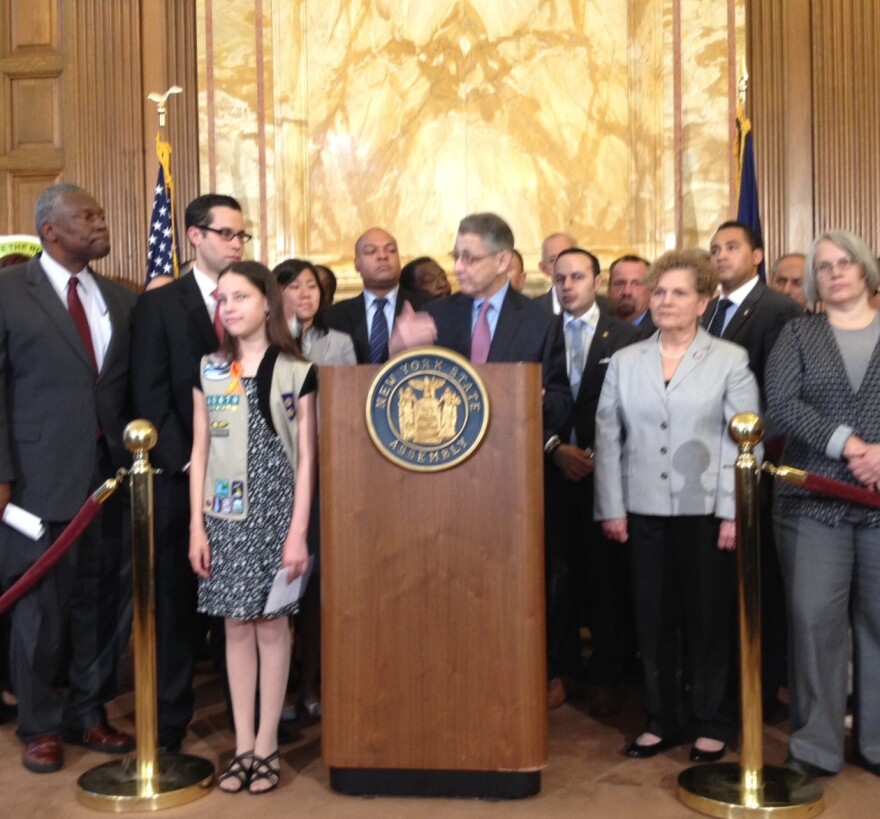Democrats in the State Assembly were debating a bill to increase the state’s minimum wage. The Republican leader of the State Senate offered a spirited defense of his position opposing the measure, but did not rule the issue out altogether.
Democrats in the Assembly were set to approve a bill to increase the state’s minimum wage from $7.25 to $8.50 an hour. Assembly Speaker Sheldon Silver, who has championed the measure, calls it a “moral imperative”.
“It is, I keep saying it, a moral issue,” said Silver.
Republicans in the Senate officially oppose the bill, but Silver predicts they will find it hard to maintain that stance, and that, in the end, there will be a “groundswell of support”. He cites a recent Siena College poll finding more than three quarters of New Yorkers want the minimum wage increased.
“The rank and file members of the Senate are going to go to the leadership and suggest to them that the right thing to do, the moral thing to do, is to support increasing the minimum wage,” Silver said.
Senate Republican Majority Leader Dean Skelos has been an opponent of the measure, saying it would be a “job killer”, because small businesses would have to pay their workers more and be unable to afford hiring additional employees. Skelos offered statistics that he says show that raising the minimum wage for a family with two entry level workers would actually cost that family benefits and some tax advantages. He says they’d have to pay $294 more dollars in additional federal pay roll taxes, nearly $3000 in additional state and federal personal income taxes, and would receive $1300 less in earned income tax credits for the working poor.
And Skelos says they might lose their eligibility for the state government funded health care known as Family Health Plus.
The Senate Leader also appeared annoyed with Speaker Silver’s repeated characterization of the minimum wage hike as a moral issue.
“Our focus, in terms of a moral imperative, is about creating jobs,” said Skelos, who says he wants to make sure that “everybody has jobs and that we grow jobs in New York State.”
Skelos stopped short, though of completely ruling out passage of a minimum wage bill in his house.
“I’m just telling you that we will not pass the Speaker’s bill,” Skelos said.
The Senator did not answer any more question on the topic.
Speaker Silver says he’s “willing to listen” if the Senate GOP want to modify the bill.
While the Assembly wants the minimum wage raised, Senate Republicans are seeking a package of small business tax cuts. Speaker Silver cast doubt on the fate of that measure, saying it could disrupt a precariously balanced state budget.
“The state has a balanced budget right now,” Silver said. “If we start reducing taxes we start reducing aid to health care, to education, to businesses.”
But Senator Skelos says the tax cuts do not have to take effect this fiscal year.
“Part of it would be commencing next year,” Skelos said.
Both leaders deny that they would trade the issue of new tax cuts for raising the minimum wage, and pass both measures as part of an end of the session deal, though in the past that’s how disagreements have been resolved in Albany.
Governor Andrew Cuomo, who has brokered similar deals with the legislature in the past, has adopted a hands- off policy to the current dispute between the two houses, saying that while he’s leaning toward raising the minimum wage, he believes the differences between the two houses are insurmountable. He’s acknowledged that the debate over the minimum wage will likely be a part of end of the session talks, but has not listed it as one of his top priorities.


